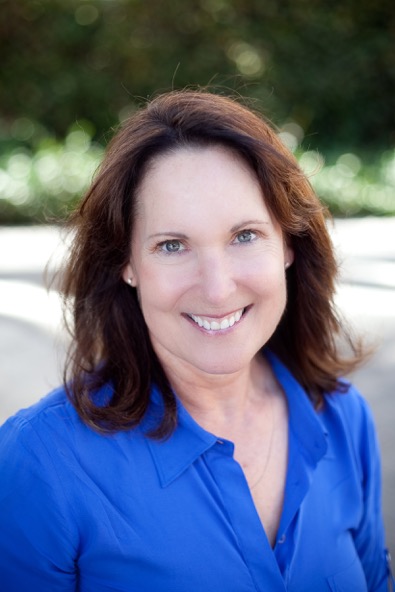Webinar - Advancing the Ethical Conduct of 21st Century Research with Dr. Camille Nebeker, Esha Bhandari and Dr. Rumi Chunara
Thursday September 24th at 10 am PT
You can view the webinar above or on our Google Plus Event page. Please feel free to ask questions prior to or during the webinar using Google’s Question and Answer feature or via Twitter using #HDEwebinar. In order to use the Question and Answer feature on Google Plus, you must be logged into a Google Plus account. To navigate to the Question and Answer feature 1) go to the webinar Google Plus event page, 2) click on the video box, 3) select the application icon (9-squar grid) in the top right corner), 4) select Q&A from the drop-down menu, 5) ask questions using the Q&A panel to the right.
Abstract
We have rapidly entered an era where researchers collect data ‘on-the-fly,’ in real-time and, subsequently, are able to design potentially meaningful, personalized and adaptive health interventions. These technologies include devices/apps that enable data collection via Mobile Imaging, pervasive Sensing, Social-media and Tracking (MISST) methods. While opportunities are fantastic, standards to guide ethical conduct of this research are lagging behind creating challenges for IRBs and researchers alike.
About Dr Camille Nebeker
 Dr. Nebeker is Assistant Professor of Behavioral Medicine in Family Medicine and Public Health at UC San Diego where she teaches Scientific Ethics. She holds an adjunct appointment in Public Health at San Diego State University (SDSU). Prior to her UC appointment in 2013, she was Director of Research Affairs at SDSU where she was responsible for the university research promotion and regulatory compliance programs. Concurrent with her leadership role, Dr. Nebeker initiated educational research programs to advance the ethical and responsible conduct of research. One initiative focuses on developing research competencies among non-academics who contribute to the process of scientific inquiry and implementation of evidence based practices. Project BRIC (Building Research Integrity and Capacity), for example, is a research ethics training designed for community members (i.e., Community Health Workers/ or Promotores) who assist academic researchers to carry out community- and clinic-based health research. Dr. Nebeker is also exploring the ethical dimensions (i.e., informed consent, risk assessment, data management) of biomedical and social research that utilize emerging technologies. Nebeker refers to this project as MISST-E, which stands for Mobile Imaging, pervasive Sensing, Social media, and Tracking – Ethics (MISST-E). Nebeker and colleagues are conducting pilot studies to explore research risks (e.g., privacy, confidentiality, bystander rights), risk management strategies (e.g., data management/security) and informed consent from several stakeholder perspectives (i.e., participants, researchers, ethics board members) with a goal of developing evidence-based practices. Since 2002, her research has received continuous support from the NIH, NSF and federal Office of Research Integrity (ORI). Dr. Nebeker will briefly describe this research as well as plans to develop and disseminate the MISST-Ethical standards via the innovative CORE prototype (Connected and Open Research Ethics). HDE network participants will have a chance to chime in how we might design a new model for responsive and agile research ethics review.
Dr. Nebeker is Assistant Professor of Behavioral Medicine in Family Medicine and Public Health at UC San Diego where she teaches Scientific Ethics. She holds an adjunct appointment in Public Health at San Diego State University (SDSU). Prior to her UC appointment in 2013, she was Director of Research Affairs at SDSU where she was responsible for the university research promotion and regulatory compliance programs. Concurrent with her leadership role, Dr. Nebeker initiated educational research programs to advance the ethical and responsible conduct of research. One initiative focuses on developing research competencies among non-academics who contribute to the process of scientific inquiry and implementation of evidence based practices. Project BRIC (Building Research Integrity and Capacity), for example, is a research ethics training designed for community members (i.e., Community Health Workers/ or Promotores) who assist academic researchers to carry out community- and clinic-based health research. Dr. Nebeker is also exploring the ethical dimensions (i.e., informed consent, risk assessment, data management) of biomedical and social research that utilize emerging technologies. Nebeker refers to this project as MISST-E, which stands for Mobile Imaging, pervasive Sensing, Social media, and Tracking – Ethics (MISST-E). Nebeker and colleagues are conducting pilot studies to explore research risks (e.g., privacy, confidentiality, bystander rights), risk management strategies (e.g., data management/security) and informed consent from several stakeholder perspectives (i.e., participants, researchers, ethics board members) with a goal of developing evidence-based practices. Since 2002, her research has received continuous support from the NIH, NSF and federal Office of Research Integrity (ORI). Dr. Nebeker will briefly describe this research as well as plans to develop and disseminate the MISST-Ethical standards via the innovative CORE prototype (Connected and Open Research Ethics). HDE network participants will have a chance to chime in how we might design a new model for responsive and agile research ethics review.
About Esha Bhandari
 Esha Bhandari is a Staff Attorney with the ACLU’s Speech, Privacy and Technology Project. Esha was previously an Equal Justice Works Fellow with the ACLU’s Immigrants’ Rights Project, where she was involved in litigating cases concerning a right to counsel in immigration proceedings, detainer policies, and discriminatory state and local laws. She has also been a staff attorney at the Center for Reproductive Rights, where she worked on two trials challenging a Texas law limiting women’s access to reproductive health care. Esha is a graduate of McGill University, the Columbia University Graduate School of Journalism, and Columbia Law School, and served as a law clerk to the Hon. Amalya L. Kearse of the U.S. Court of Appeals for the Second Circuit.
Esha Bhandari is a Staff Attorney with the ACLU’s Speech, Privacy and Technology Project. Esha was previously an Equal Justice Works Fellow with the ACLU’s Immigrants’ Rights Project, where she was involved in litigating cases concerning a right to counsel in immigration proceedings, detainer policies, and discriminatory state and local laws. She has also been a staff attorney at the Center for Reproductive Rights, where she worked on two trials challenging a Texas law limiting women’s access to reproductive health care. Esha is a graduate of McGill University, the Columbia University Graduate School of Journalism, and Columbia Law School, and served as a law clerk to the Hon. Amalya L. Kearse of the U.S. Court of Appeals for the Second Circuit.
About Dr Rumi Chunara
 Rumi Chunara is an Assistant Professor at NYU, in Computer Science & Engineering and the College of Global Public Health. Her research focuses on how we can use data from outside healthcare systems to better understand how and why infectious and noncommunicable diseases spread in populations. In order to do this, her research group builds systems to obtain data and develops computational methods to harness the unstructured data and incorporate it into epidemiological models. Dr. Chunara has used data from sources such as Twitter, Facebook, Amazon Mechanical Turk, HealthMap. This work has resulted in platforms for crowdsourcing molecular specimens and exercise data (RunKeeper) from the community. She received her B.S. in Electrical Engineering at Caltech, S.M. in Electrical Engineering and Computer Science at MIT and Ph.D. in Electrical and Medical Engineering at the Harvard-MIT Division of Health Sciences and Technology. Rumi is a recipient of a Caltech Merit Scholarship, MIT Presidential Fellowship and is an MIT Top 35 innovator under 35 (2014). Her research is graciously funded by the National Science Foundation, National Institutes of Health, Health Data Exploration Project and the International Growth Center.
Rumi Chunara is an Assistant Professor at NYU, in Computer Science & Engineering and the College of Global Public Health. Her research focuses on how we can use data from outside healthcare systems to better understand how and why infectious and noncommunicable diseases spread in populations. In order to do this, her research group builds systems to obtain data and develops computational methods to harness the unstructured data and incorporate it into epidemiological models. Dr. Chunara has used data from sources such as Twitter, Facebook, Amazon Mechanical Turk, HealthMap. This work has resulted in platforms for crowdsourcing molecular specimens and exercise data (RunKeeper) from the community. She received her B.S. in Electrical Engineering at Caltech, S.M. in Electrical Engineering and Computer Science at MIT and Ph.D. in Electrical and Medical Engineering at the Harvard-MIT Division of Health Sciences and Technology. Rumi is a recipient of a Caltech Merit Scholarship, MIT Presidential Fellowship and is an MIT Top 35 innovator under 35 (2014). Her research is graciously funded by the National Science Foundation, National Institutes of Health, Health Data Exploration Project and the International Growth Center.
Upcoming Webinars

Today, collecting and storing personal health-related data is relatively easy with sensors like Fitbit and smartphone apps like Apple’s Healthkit. However, doing something useful with that data — enhancing doctor-patient decision making or advancing medical research discoveries — is far more difficult. O’Reilly Media recently completed a project with the Robert Wood Johnson Foundation and the Health eHeart project at the University of California San Francisco Medical School designed to uncover ways to accelerate the pace and efficacy of online, crowd-sourced clinical studies. View webinar here.
Past Webinars

Classical clinical trials harvest a handful of measurements from thousands of people. Precision medicine requires different ways of testing interventions. Researchers need to probe the myriad factors — genetic and environmental, among others — that promote an individual’s health, their susceptibility to disease, and their response to a particular treatment. View webinar here.




